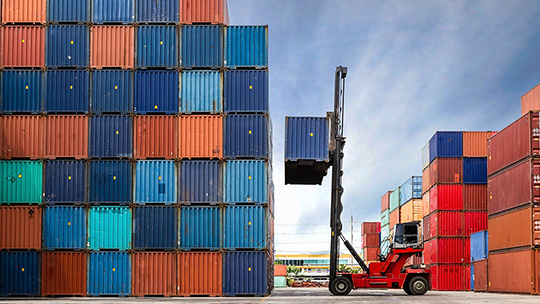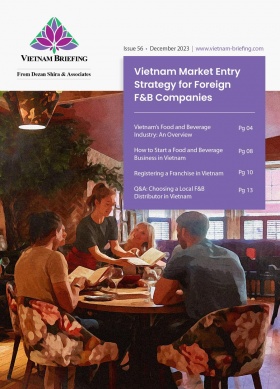Vietnam’s 2024 Law on Credit Institutions
Financial analysts anticipate that the 2024 Law on Credit Institutions will bolster the security of Vietnam’s credit institutions through fortified risk prevention measures, heightened oversight of credit entities, and deterrence of cross-ownership and undue influence within the sector.
The Government of Vietnam and the National Assembly officially approved the draft 2024 Law on Credit Institutions on January 18, 2024, at the fifth extraordinary session of the 15th National Assembly.
According to Nguyen Thi Hong, Governor of the State Bank of Vietnam (SBV), the SBV had collaborated with relevant ministries and government agencies in developing the draft 2024 Law on Credit Institutions.
The 2024 Law on Credit Institutions is expected to take effect from July 1, 2024, and will replace the 2010 Law on Credit Institutions.
In this article, we examine the impact of supplements and amendments in the new law, noteworthy differences from the 2010 version, and the upcoming documents guiding the 2024 Law on Credit Institutions.
Overview
The 2024 Law on Credit Institutions maintains several provisions from its 2010 predecessor, covering aspects such as the establishment, operations, special control, restructuring, and bankruptcy of credit institutions. It also addresses regulations concerning the establishment and operations of foreign bank branches, representative offices of foreign credit institutions, and other foreign entities engaged in banking activities.
Further, the new law introduces provisions for managing non-performing loans and secured assets, with additional emphasis on state-owned entities responsible for acquiring and managing debts. These amendments are seen as necessary for strengthening Vietnam’s legal framework governing financial and credit operations, thereby enhancing the efficacy and stability of the banking sector.
Structurally, the 2024 Law on Credit Institutions comprises 21 Articles distributed across 15 Chapters, representing an expansion of four Chapters compared to its 2010 counterpart.
|
Comparing the Two Versions of the Law on Credit Institutions |
|
|
2010 |
2024 |
|
Article 17 on policy banks* |
Chapter II about the types of policy banks* |
|
Article 130 on safety ratios |
Chapter IX about early interventions |
|
Regulations on the special lending operations are included in the Chapter about the special controls No regulations on responses to mass withdrawals at a credit institution |
Chapter XI about the special control measures, and solutions to respond to the situations of mass withdrawals (bank run) at a credit institution; the special lending operations |
|
Not provided |
Chapter XII about the resolution of non-performing loans (NPL) with collaterals |
*Policy banks are established by the Prime Minister and operate on a not-for-profit basis so as to implement the Vietnam State’s socio-economic policies.
Key provisions of the 2024 Law on Credit Institutions
Policy banks
The Law on Credit Institutions 2024 provides comprehensive regulations on policy banks, dedicating an entire chapter on the matter compared to just one article in the existing law.
As per provisions of Article 16 and Article 17 of the Law on Credit Institutions 2024, a policy bank in Vietnam is established by the Prime Minister to serve non-profit purposes in implementing the state’s socio-economic policies. The government regulates the activities of these banks, and state management functions are carried out by the Prime Minister and relevant ministries. The policy bank’s Board of Directors acts as the direct representative of the state owner, executing tasks and powers as per government regulations.
Article 19 of the Law on Credit Institutions 2024 outlines the management and organizational structure of policy banks. These banks are structured to include the Board of Directors, the Control Board, the General Director, and other management structures, all in accordance with government regulations. Furthermore, policy banks are granted the authority to establish branches, transaction offices, and other affiliated units as prescribed by law. This provision allows for the expansion and outreach of policy banks within the financial system, facilitating their role in implementing socio-economic policies and serving the needs of the state.
Types of non-banking credit institutions
Additionally, the new law divides non-banking credit institutions into two types: specialized finance companies and general finance companies. Per that categorization, the new law guides the operation of non-banking credit institutions in more detail and transparency.
The lawmakers expect these amendments to facilitate the operations of policy banks and non-banking credit institutions, stimulating the sustainable development of Vietnam’s financial industry.
- “Specialized finance company” means a type of non-bank credit institution whose main activities fall within one of the fields of factoring, buyer credit, finance lease according to regulations of this Law.
- “General finance company” means a type of non-bank credit institution that carries out activities as prescribed in Section 3 Chapter V of this Law.
Early interventions
The new law places significant emphasis on early intervention measures, dedicating an entire chapter, Chapter IX, to this critical issue. Under these provisions, the State Bank will consider intervening early in a credit institution or foreign bank branch under various circumstances:
- When the accumulated losses incurred by the credit institution or foreign bank branch exceed 15 percent of its charter capital, provided capital, and reserves, and violations against regulations on capital adequacy ratio in the law occur.
- When the credit institution or foreign bank branch is ranked below average according to SBV governor’s regulations.
- When the credit institution or foreign bank branch fails to meet the minimum solvency ratio for 30 consecutive days.
- When the credit institution or foreign bank branch fails to maintain the minimum capital adequacy ratio specified for six consecutive months.
- When a bank run occurs, and the credit institution or foreign bank branch notifies the SBV.
In response to these situations, the SBV will implement requirements and restriction measures on the credit institutions or foreign bank branches subject to early intervention.
This chapter on early interventions not only assists credit institutions and foreign bank branches in mitigating risks but also establishes a legal framework for the SBV to intervene and forestall further impacts on the banking system and the stability of the economy.
Bank run
According to the new law, a “bank run” or “mass withdrawal” refers to a scenario where numerous depositors withdraw their funds from a credit institution simultaneously, resulting in the institution facing or likely to face insolvency as per the regulations outlined by the Governor of the State Bank.
In the event of a bank run, the credit institution must notify the SBV and take the following actions:
- Cease paying dividends in cash.
- Suspend or limit credit extensions and other activities utilizing the institution’s funds.
- Implement alternative measures for deposit repayment.
- Execute measures outlined in the remedial plan should a bank run occur.
- Revise and adapt the plan as needed based on ongoing assessments.
Furthermore, the credit institution must continually evaluate and reassess the situation to develop, modify, and execute the remedial plan in accordance with the new law. Concurrently, the SBV will provide assistance measures for the affected institution.
Additionally, the new law establishes a mechanism for the SBV to regulate and approve interest-bearing and secured extraordinary loans, offering more flexibility compared to existing regulations. Unlike the previous stipulation mandating Prime Ministerial approval for the terms of any extraordinary loans, the new law delegates this authority to the SBV. However, it still mandates Prime Ministerial approval for any extraordinary loans that are either interest-free or unsecured.
Expanded scope of “related parties”
The new law broadens the definition of related parties to cover relationships between an entity and its sub-subsidiaries, the sub-subsidiaries of the same parent company, and any shareholder holding more than 5 percent equity or voting rights in the entity.
Moreover, individual family relationships, such as grandparents, great-grandparents, grandchildren, great-grandchildren, aunts, uncles, cousins, nephews, and nieces, are now classified as related parties.
This broader scope of related parties provides a more effective management tool, as the identities of such parties may impact the supervision of various aspects, including share ownership ratios, credit limits, approval of transactions involving related parties, disclosure obligations, and information dissemination.
Stricter regulations on share ownership
Under the new law, shareholders holding at least 1 percent of a credit institution’s charter capital are required to disclose information about themselves, their holdings in the institution, related parties, and the holdings of those related parties.
Furthermore, individual shareholders are limited to owning 5 percent or less of the institution’s charter capital, including any indirect ownership. Organizations face a maximum ownership limitation of 10 percent.
Moreover, shareholders and related parties are prohibited from collectively owning more than 15 percent of a credit institution’s charter capital, a reduction from the 20 percent limit stipulated in the current law. Additionally, major shareholders and related parties of one credit institution are restricted from owning more than 5 percent of another institution’s charter capital.
The 2024 Law on Credit Institutions includes a transitional provision allowing shareholders and related parties who hold shares exceeding the limits to maintain such holdings but prohibits them from acquiring additional shares until they comply with the law’s regulations on ownership.
However, these regulations do not apply to state ownership in equitized credit institutions and foreign investors’ ownership.
The scandal involving Sai Gon Joint Stock Commercial Bank (SCB) and Van Thinh Phat in 2024 dealt a significant blow to Vietnam’s financial and credit system, highlighting concerns regarding cross-ownership and manipulation of credit institutions by individual shareholders or large shareholder groups. The regulations outlined in the new law are essential for enhancing public oversight, ensuring the separation of management and operational activities, and promoting transparent governance in businesses in line with international standards.
Settlement of bad debts and collateral
Chapter XII of the new law integrates provisions from the 2010 legislation, particularly guiding the handling of non-performing loans secured by land use rights and immovables.
An improvement in the new law is that purchasers of such loans can now be registered as the mortgagees of the relevant security. Subsequently, they inherit all rights and obligations of the original mortgagees.
More refinements achieved in the new law
In addition to the significant amendments highlighted earlier, the 2024 Law on Credit Institutions introduces several new provisions, including:
- Disclosure obligations, aiming to enhance transparency and accountability within credit institutions.
- Consolidation of establishment and operation license and business registration certificate, streamlining administrative processes.
- Regulation on security agents, outlining guidelines for entities acting as security agents in financial transactions.
- Reduction of the credit extension limit, to promote responsible lending practices and mitigate risks in the financial sector.
Responsibilities of relevant agencies and organizations
The Prime Minister of Vietnam has issued a list of 10 guiding documents for the implementation of the new law, assigning specific authorities for their formulation:
- The State Bank of Vietnam is tasked with issuing decrees on various aspects, including the organization and operation of the Vietnam Bank for Social Policies, licensing conditions for credit institutions and foreign bank branches, regulations on non-cash payments, microfinance programs of socio-political organizations and non-governmental organizations, and decisions on approving credit overextensions by credit institutions and foreign bank branches.
- The Ministry of Finance is responsible for issuing decrees concerning the organization and operation of the Vietnam Development Bank and financial regulations governing policy banks.
- The Ministry of Labor – War Invalids and Social Affairs is mandated to issue a decree on regulations pertaining to salaries and allowances for officials and public employees of policy banks.
- The Ministry of Natural Resources and Environment is entrusted with issuing a decree on the registration of changes to land regarding collateral, specifically land use rights or property on land, for debts originating from bad debts of credit institutions or foreign bank branches.
- The Ministry of Justice is assigned to issue a decree on collateral registration for land use rights, property on land, and property on land for debts originating from bad debts of credit institutions and foreign bank branches.
During the conference on disseminating the 2024 Law on Credit Institutions, the SBV governor emphasized the importance for credit institutions to review their charters, internal documents, and regulations. They should undertake revisions, amendments, supplements, and replacements to ensure full consistency with the new law and the accompanying guiding documents. Furthermore, credit institutions were urged to conduct comprehensive dissemination and communication of the new law to all staff and employees. Additionally, they were instructed to develop implementation plans for the new regulations with specific timelines to ensure compliance.
Conclusion
The 2024 Law on Credit Institutions establishes more comprehensive regulations governing the activities of credit institutions and foreign bank branches, providing clear and transparent guidance. Simultaneously, it lays the groundwork for credit institutions to innovate their operations, adapt to practical requirements, and enhance competitiveness in the financial sector.
About Us
Vietnam Briefing is published by Asia Briefing, a subsidiary of Dezan Shira & Associates. We produce material for foreign investors throughout Asia, including ASEAN, China, and India. For editorial matters, contact us here and for a complimentary subscription to our products, please click here. For assistance with investments into Vietnam, please contact us at vietnam@dezshira.com or visit us at www.dezshira.com.
Dezan Shira & Associates assists foreign investors throughout Asia from offices across the world, including in Hanoi, Ho Chi Minh City, and Da Nang. We also maintain offices or have alliance partners assisting foreign investors in China, Hong Kong SAR, Dubai (UAE), Indonesia, Singapore, Philippines, Malaysia, Thailand, Bangladesh, Italy, Germany, the United States, and Australia.
- Previous Article HCMC, Hanoi Among World’s 10 Fastest-Developing Cities: New Report
- Next Article Vietnam Sets Record for Newly Established Firms in the First Five Months of 2024
































